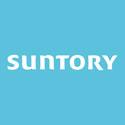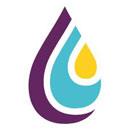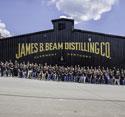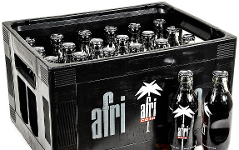Asahi
After $11B Australian Gulp, Asahi’s Acquisition Spree Likely To Proceed With Smaller Swigs
 Under the direction of chief executive Akiyoshi Koji, Japanese brewer Asahi has transformed itself from a conservative, domestically-focused brewer into an aggressive dealmaker that has spent an eye-popping $21 billion on acquisitions in the past three years, the latest being the $11 billion purchase of Australia’s Carlton & United Breweries from AB InBev. Though Asahi’s overseas splurge initially faced internal opposition, the company realized it needed to reduce reliance on a deflationary and rapidly aging home market, where domestic beer volumes have been falling for more than two decades. A major turning point was the 2016 merger of the world’s two largest brewers, AB InBev and SABMiller, creating a brewing monster. After that, Koji pushed through deals that normally don’t make it past traditional Japanese directors. For the future, the company plans to strengthen its three core markets in Japan, Europe and Australia, and focus on smaller acquisitions similar to its $305 million deal to buy the beer business of the U.K.’s Fuller Smith & Turner in January.[Image Credit: © Asahi Group Holdings, Ltd]
Under the direction of chief executive Akiyoshi Koji, Japanese brewer Asahi has transformed itself from a conservative, domestically-focused brewer into an aggressive dealmaker that has spent an eye-popping $21 billion on acquisitions in the past three years, the latest being the $11 billion purchase of Australia’s Carlton & United Breweries from AB InBev. Though Asahi’s overseas splurge initially faced internal opposition, the company realized it needed to reduce reliance on a deflationary and rapidly aging home market, where domestic beer volumes have been falling for more than two decades. A major turning point was the 2016 merger of the world’s two largest brewers, AB InBev and SABMiller, creating a brewing monster. After that, Koji pushed through deals that normally don’t make it past traditional Japanese directors. For the future, the company plans to strengthen its three core markets in Japan, Europe and Australia, and focus on smaller acquisitions similar to its $305 million deal to buy the beer business of the U.K.’s Fuller Smith & Turner in January.[Image Credit: © Asahi Group Holdings, Ltd]
Asahi Racks Up Another Australian Brewery Acquisition
Continuing its expansion in Australia, acquisitive Japanese brewer Asahi is purchasing six-year-old Brisbane-based craft brewer Green Beacon Brewing. The company’s two breweries make beers such as Windjammer IPA, Wayfarer Tropical Pale, 3 Bolt Pale Ale, and Half Mast India Session Ale. The announcement comes a month after Asahi acquired Carlton & United Breweries, AB InBev’s Australian subsidiary, for $11.3 billion. That purchase added beer brands such as Carlton Draught, Cascade and Crown Lager to Asahi’s current offerings in Australia, including Grolsch and Peroni.[Image Credit: © Green Beacon Brewing]
Carlsberg
Carlsberg Reports Strong Volume Growth In Non-Alcoholic Beers
 Cees 't Hart, CEO of Danish brewer Carlsberg, told analysts in last week's first-half 2019 earnings call that the company’s alcohol-free brews grew 16 percent in volume in the period, with such products offering “long-term volume and value growth opportunities.” By comparison, the company’s core beer portfolio grew only one percent in volume. With internal research showing that 68 percent of consumers aged 24-45 want to consume healthily, Carlsberg says it wants to drive non-alcoholic beer as a category through line extensions and stand-alone brands, and by investing in technology to overcome taste barriers. The company’s alcohol-free portfolio is led by Carlsberg 0.0, an alternative to its flagship brand. In other countries, its alcohol-free brews comprise local brands such as Baltika 0 in Russia, Munkholm in Norway, and Nordic in Denmark. Alcohol-free beer now makes up around four percent of Carlsberg's net revenue and three percent of its volume.[Image Credit: © Carlsberg Breweries A/S]
Cees 't Hart, CEO of Danish brewer Carlsberg, told analysts in last week's first-half 2019 earnings call that the company’s alcohol-free brews grew 16 percent in volume in the period, with such products offering “long-term volume and value growth opportunities.” By comparison, the company’s core beer portfolio grew only one percent in volume. With internal research showing that 68 percent of consumers aged 24-45 want to consume healthily, Carlsberg says it wants to drive non-alcoholic beer as a category through line extensions and stand-alone brands, and by investing in technology to overcome taste barriers. The company’s alcohol-free portfolio is led by Carlsberg 0.0, an alternative to its flagship brand. In other countries, its alcohol-free brews comprise local brands such as Baltika 0 in Russia, Munkholm in Norway, and Nordic in Denmark. Alcohol-free beer now makes up around four percent of Carlsberg's net revenue and three percent of its volume.[Image Credit: © Carlsberg Breweries A/S]
Companies
Suntory Pursues “Bottle-To-Bottle” Plastics Project
 After China’s 2017 decision to stop importing other countries’ plastic waste, Japan needed to quickly find alternative destinations for its waste in regions like Southeast Asia. However, Malaysia and the Philippines have followed China’s lead and vowed to turn away shipments of plastic waste, unwilling to serve as dumping grounds for first-world garbage. Japanese leaders are considering a number of potential solutions to the growing problem, including boosting the capabilities of incinerators to burn plastic refuse as fuel for generating energy, and increasing the recycling of soft drink bottles made from polyethylene terephthalate (PET). Suntory has become the first major Japanese beverage company to move toward closed-loop recycling when in May it announced an initiative to use PET drink bottles made completely from old containers. It is partnering on the project with Kyōei Industry, which has developed a method for creating high-quality PET resin from recycled plastic bottles. The bottle-to-bottle movement gained momentum after a 2009 study showed that manufacturing PET bottles from used plastic emits 63 percent less CO2 than using petroleum does.[Image Credit: © SUNTORY HOLDINGS LIMITED]
After China’s 2017 decision to stop importing other countries’ plastic waste, Japan needed to quickly find alternative destinations for its waste in regions like Southeast Asia. However, Malaysia and the Philippines have followed China’s lead and vowed to turn away shipments of plastic waste, unwilling to serve as dumping grounds for first-world garbage. Japanese leaders are considering a number of potential solutions to the growing problem, including boosting the capabilities of incinerators to burn plastic refuse as fuel for generating energy, and increasing the recycling of soft drink bottles made from polyethylene terephthalate (PET). Suntory has become the first major Japanese beverage company to move toward closed-loop recycling when in May it announced an initiative to use PET drink bottles made completely from old containers. It is partnering on the project with Kyōei Industry, which has developed a method for creating high-quality PET resin from recycled plastic bottles. The bottle-to-bottle movement gained momentum after a 2009 study showed that manufacturing PET bottles from used plastic emits 63 percent less CO2 than using petroleum does.[Image Credit: © SUNTORY HOLDINGS LIMITED]
Suntory Urges Caution In The Face Of New Sugar Taxes In Southeast Asia
 Japanese food and beverage major Suntory says its recent strong growth in the Southeast Asian market, particularly in Vietnam and Thailand, may be hampered by sugar tax implementations in some countries. The introduction and incremental raising of sugar taxes in Malaysia (July 2019) and Thailand (October 2019) means the company needs to be cautious because of possible volatility. The company posted overall profit of overall company profit of $5.9 billion, a 2.3 percent increase year-over-year. Asia generally, excluding Japan, experienced the strongest growth for Suntory: 19.6 percent ($1.1 billion) year-over-year.[Image Credit: © Suntory Group]
Japanese food and beverage major Suntory says its recent strong growth in the Southeast Asian market, particularly in Vietnam and Thailand, may be hampered by sugar tax implementations in some countries. The introduction and incremental raising of sugar taxes in Malaysia (July 2019) and Thailand (October 2019) means the company needs to be cautious because of possible volatility. The company posted overall profit of overall company profit of $5.9 billion, a 2.3 percent increase year-over-year. Asia generally, excluding Japan, experienced the strongest growth for Suntory: 19.6 percent ($1.1 billion) year-over-year.[Image Credit: © Suntory Group]
Innovations
U.K. Government Backs Effort To Develop Edible, Plastic-Free Beverage Packaging
 The U.K. government’s innovation agency is funding a Lucozade Ribena Suntory-backed effort to develop edible/biodegradable seaweed-based capsules, called Oohos, that could be used to package drinks under 100 ml without using plastic. The funding was secured by Ooho manufacturer Notpla in partnership with Lucozade Ribena Suntory and Vita Mojo. The funding will help perfect the technology behind Oohos by creating a machine that could be installed in gyms or restaurants and make up to 3,000 Oohos a day containing drinks like Lucozade Sport. The machine would allow customers to buy liquid-filled Oohos at local coffee shops and gyms. Lucozade Ribena Suntory has committed to eliminate single-use plastic packaging and ensure 100 percent of its plastic packaging is reusable, recyclable, or compostable by 2025.[Image Credit: © Lucozade Ribena Suntory]
The U.K. government’s innovation agency is funding a Lucozade Ribena Suntory-backed effort to develop edible/biodegradable seaweed-based capsules, called Oohos, that could be used to package drinks under 100 ml without using plastic. The funding was secured by Ooho manufacturer Notpla in partnership with Lucozade Ribena Suntory and Vita Mojo. The funding will help perfect the technology behind Oohos by creating a machine that could be installed in gyms or restaurants and make up to 3,000 Oohos a day containing drinks like Lucozade Sport. The machine would allow customers to buy liquid-filled Oohos at local coffee shops and gyms. Lucozade Ribena Suntory has committed to eliminate single-use plastic packaging and ensure 100 percent of its plastic packaging is reusable, recyclable, or compostable by 2025.[Image Credit: © Lucozade Ribena Suntory]
Suntory
Beam Suntory CEO Is Optimistic About Future Of Company’s Bourbons, Here And Abroad
 Newly-minted Beam Suntory CEO Albert Baladi painted a rosy picture of the health of its key whisky and other brands in a recent interview. Sales of Jim Beam are up “very close to double-digits,” he noted, while Maker’s Mark, Knob Creek, and Basil Hayden’s are all growing, along with the Toki brand in Japan. The scotch lineup, particularly Laphroaig and new brand Legent, are doing well. Meanwhile, in the U.S., Hornitos Tequila continues strong, growing by double-digits, along with re-launched craft tequila El Tesoro. Premiumized cognac brand Courvoisier is growing by double digits in the U.S. Noting that bourbon has become “the world’s whisky,” Baladi said the company’s “two big bets” in 2019 and beyond are India and China, which are a “small base” now but growing steadily. Other hot markets for bourbon include Russia, Mexico, Brazil, and Poland.[Image Credit: © Beam Suntory, Inc.]
Newly-minted Beam Suntory CEO Albert Baladi painted a rosy picture of the health of its key whisky and other brands in a recent interview. Sales of Jim Beam are up “very close to double-digits,” he noted, while Maker’s Mark, Knob Creek, and Basil Hayden’s are all growing, along with the Toki brand in Japan. The scotch lineup, particularly Laphroaig and new brand Legent, are doing well. Meanwhile, in the U.S., Hornitos Tequila continues strong, growing by double-digits, along with re-launched craft tequila El Tesoro. Premiumized cognac brand Courvoisier is growing by double digits in the U.S. Noting that bourbon has become “the world’s whisky,” Baladi said the company’s “two big bets” in 2019 and beyond are India and China, which are a “small base” now but growing steadily. Other hot markets for bourbon include Russia, Mexico, Brazil, and Poland.[Image Credit: © Beam Suntory, Inc.]
Copyright 2026 Business360, Inc.

